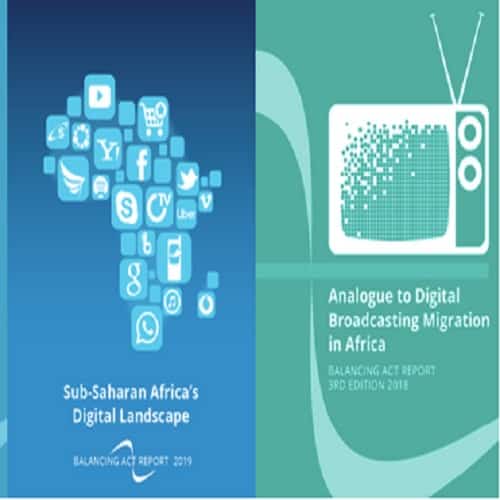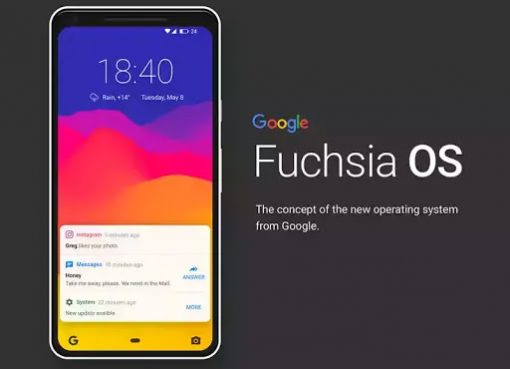African Interconnection Report: Analysis of Sub-Saharan Africa’s Cloud and Data Centre Ecosystem – that looks at where data centres and cloud service providers are operating and what they are doing. The report has been produced by Balancing Act in partnership with PCCW Global.
2020 has been a significant year for Africa’s cloud ecosystem. Considerable new investment is going into carrier-neutral data centres across Sub-Saharan Africa and slowly but surely the adoption of cloud services is gathering pace.

The impact of the Covid-19 pandemic has led many businesses to accelerate adoption of cloud services in order to help them operate during these difficult times. But they are also looking beyond the short-term and want a more strategic view of how cloud can drive efficiencies and reduce cost in the future.
The research focuses on 10 of the region’s largest economies, but in some lesser detail covers all countries across Sub-Saharan Africa. The countries of focus in the report are: Angola, Cote d’Ivoire, Djibouti, DRC, Ghana, Kenya, Nigeria, Mozambique, South Africa and Uganda.
There are 10 Sub-Saharan African countries with carrier-neutral data centres (Angola, Cote d’Ivoire, Djibouti, Ghana, Kenya, Mauritius, Mozambique, Nigeria, South Africa and Zambia) and 6 more are coming on stream shortly (DRC, Ethiopia, Rwanda, Senegal, Uganda and Zimbabwe). Overall, significant investments are being made in new facilities.
About a quarter of Sub-Saharan African countries have an existing or planned carrier-neutral data centre. Of the rack capacity in 5 key countries (South Africa, Nigeria, Kenya, Ghana and Angola), South Africa represents 89% of total capacity in those selected countries.
The quality and operational expertise of carrier-neutral data centres in Sub-Saharan Africa has improved a great deal over last 5 years. Operators who were in the first wave of launches can now point to nearly a decade or more of continuous successful operation. Several of the planned next generation data centres are being built to Level IV standard.
Several carriers – mainly mobile operators– have made significant investments in data centres. These include data centres of some scale in the following countries: Cameroon, Cote d’Ivoire, Kenya, Malawi, Mozambique, Nigeria and South Africa.
There are 28 IXPs across Sub-Saharan Africa. In countries where they exist, international players also locate themselves. The greatest concentration of international companies and organisations is found in South Africa, followed by Kenya and Nigeria.
There are five major hyperscalers with an active interest in Africa. These are: Microsoft Azure (which is probably currently the largest provider), AWS, Google Cloud (which has a significant presence in Kenya, Ghana and South Africa), Whale Cloud (part of Alibaba) and Huawei Cloud.
African companies that are either using carrier-neutral data centres for data recovery or have replaced their in-house data centres with an external supplier are on a journey towards further cloud adoption.
In more liberalised communications markets, there are local telcos and ISPs which needa meet point function: even with a relatively small number of players, it makes no sense in an IP world to have individual connections to all players.
Among the first wave of carrier-neutral data centre users were banks, which are under increasing legal obligations to have their disaster recovery outside their own premises. The second wave of users were multinational companies looking for cost and operational efficiencies. The report contains several examples of companies transitioning to the cloud. The acceleration in digital transformation and the arrival of more data centres and cloud service providers in Africa will increase the overall need for local interconnection.
In Brief
Ghana rural roll-out: Ghana’s Ministry of Communications (MoC) through the Ghana Investment Fund for Electronic Communications (GIFEC), in partnership with the Export-Import Bank of China and Huawei Technologies Ghana officially launched the Rural Telephony Project at Atwereboana in the Ashanti Region on 4 November. The initiative aims to provide voice and data services to more than 3.4 million people in underserved and unserved communities by commissioning 2,016 Rural Star sites developed by Huawei, thereby extending national mobile coverage from 83% to 95% and greatly accelerating local economic development.
Ethiopia – Two licencees selected: Last week, the Ethiopian Communications Authority confirmed that two new service providers had been selected to receive the country’s first private operating licences, and that their names would be revealed by the end of this month.
Kenya – Safaricom rural roll-out: Thousands of residents in remote areas of Kitui County that were previously not linked to the basic mobile telephony, are now enjoying services thanks to regulatory obligations vested on licensed mobile operators. More than 30,000 people who were initially unable to receive or make calls can now enjoy mobile services as a result of the Universal Service Obligation that requires mobile network providers to offer services to unserved areas as per their licence conditions. The beneficiary sub-locations include Katia, Kanthungu, Kavaani and Ikime. Safaricom under its licence obligation has constructed telecommunication sites in Mwanzugululu in Katia sub-location that now provides coverage to Nguuku Village in Mumoni Ward and Kanthungu site in Kanthungu sub-location, providing coverage in Nthagani village in Tharaka ward.
South Africa’s Pick n Pay launches MVNO: South African grocery retailer Pick n Pay will start providing mobile phone services to try to grow its value-added and financial services business, seeking to drive down data costs for its customers. Rather than building infrastructure, Pick n Pay will operate as a mobile virtual network operator, or MVNO, using MTN’s mobile network infrastructure to offer customers prepaid, SIM-based access to services including airtime, data, and SMS, sold under its PnP Mobile brand, it said on Wednesday.
Wi-Fi 6 and Roaming: According to a Wireless Broadband Alliance cross-industry survey of service providers, equipment manufacturers and enterprises, almost four out of five (79%) have adopted or plan to adopt the WBA OpenRoaming standard. As the Wi-Fi roaming standard was only introduced in late May 2020, this demonstrates a very rapid and widespread acceptance of WBA OpenRoaming in less than six months.
The outgoing Trump administration has unveiled an executive order prohibiting U.S. investments in Chinese firms that Washington says are owned or controlled by the Chinese military. The list includes telecoms equipment vendor Huawei.
Pacer Ventures launches a $3M Fund for Early-Stage African Startups: it is looking for start-ups solving some of the most critical problems on the continent. The focus will be on verticals expedient to the African continent including healthcare, financial inclusion, education and agriculture.
CIVH, the South African telecoms infrastructure holding company that owns both Vumatel and Dark Fibre Africa, is in discussions with local and international investors as it seeks to raise ZAR6 billion (USD389.4 million) worth of new funding. According to TechCentral, which cites sources with knowledge of the situation, Vodacom Group has held talks to buy ‘a significant minority stake’ in CIVH. Vodacom is thought to be interested in securing a 30%-40% stake. The African telecoms giant first entertained a takeover of Vumatel back in 2018, only for CIVH to acquire the company instead.
Source: balancingact










